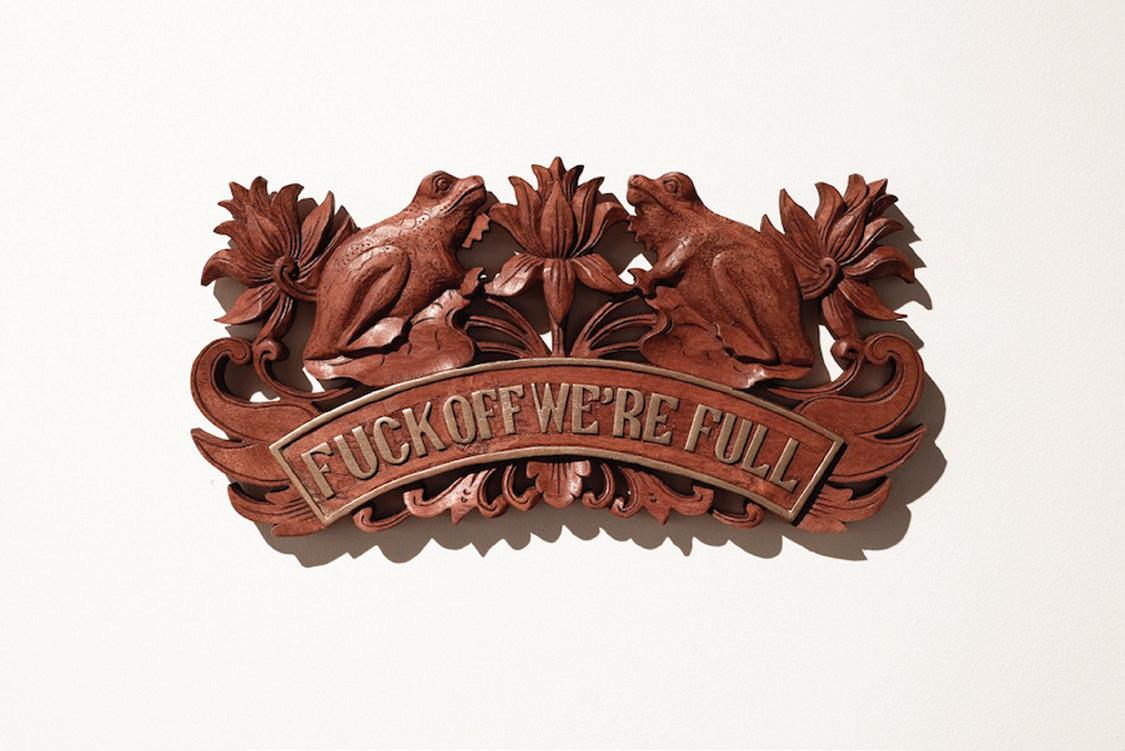
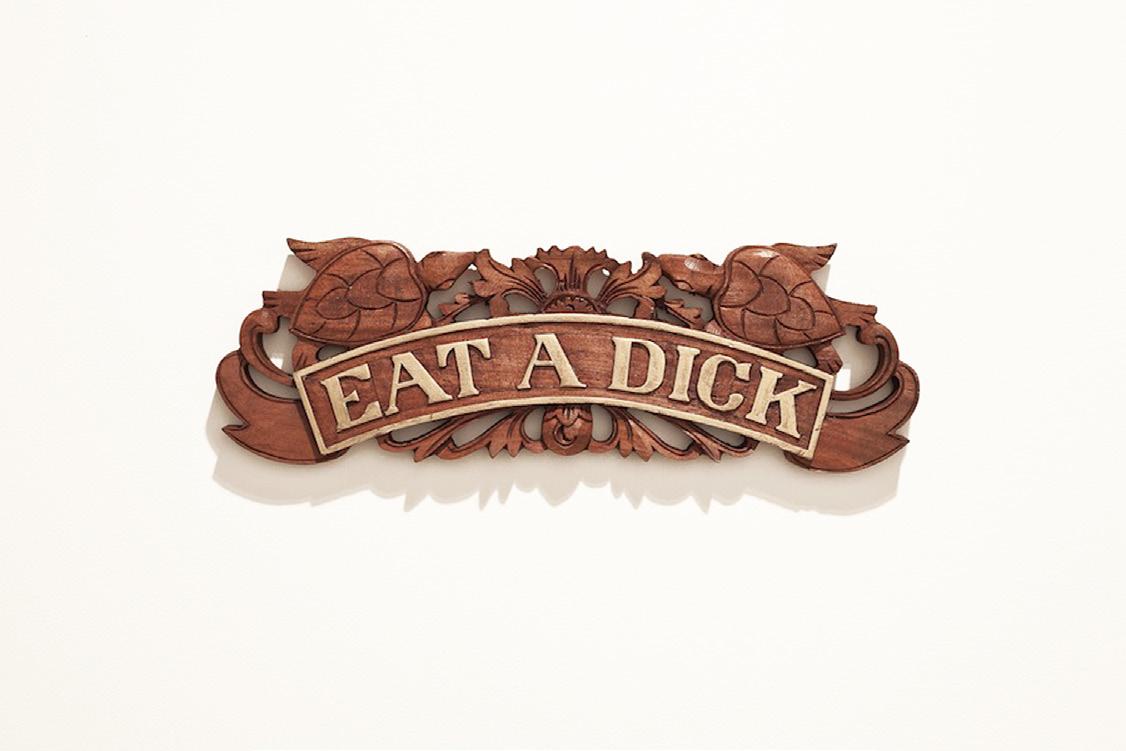
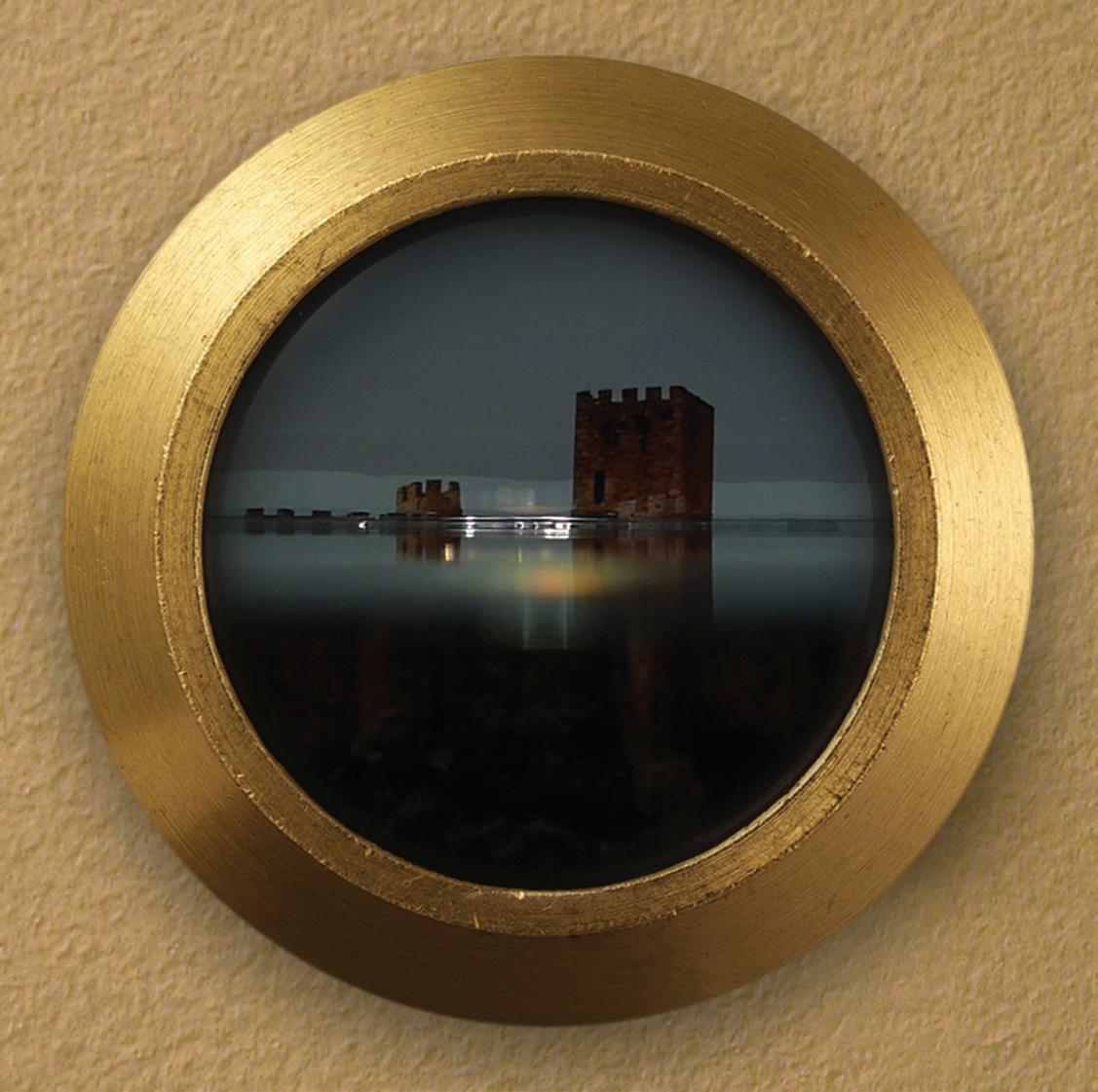
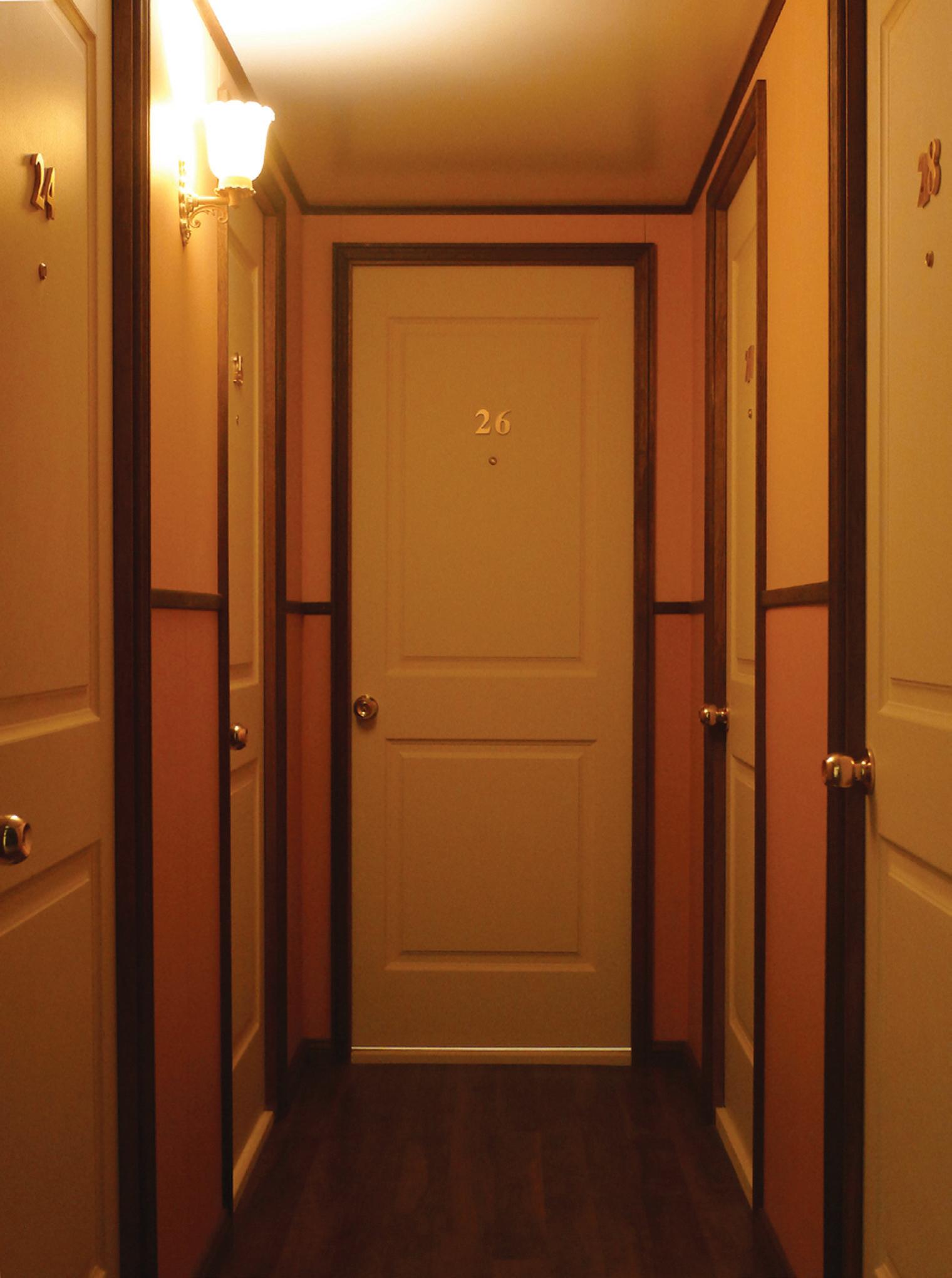
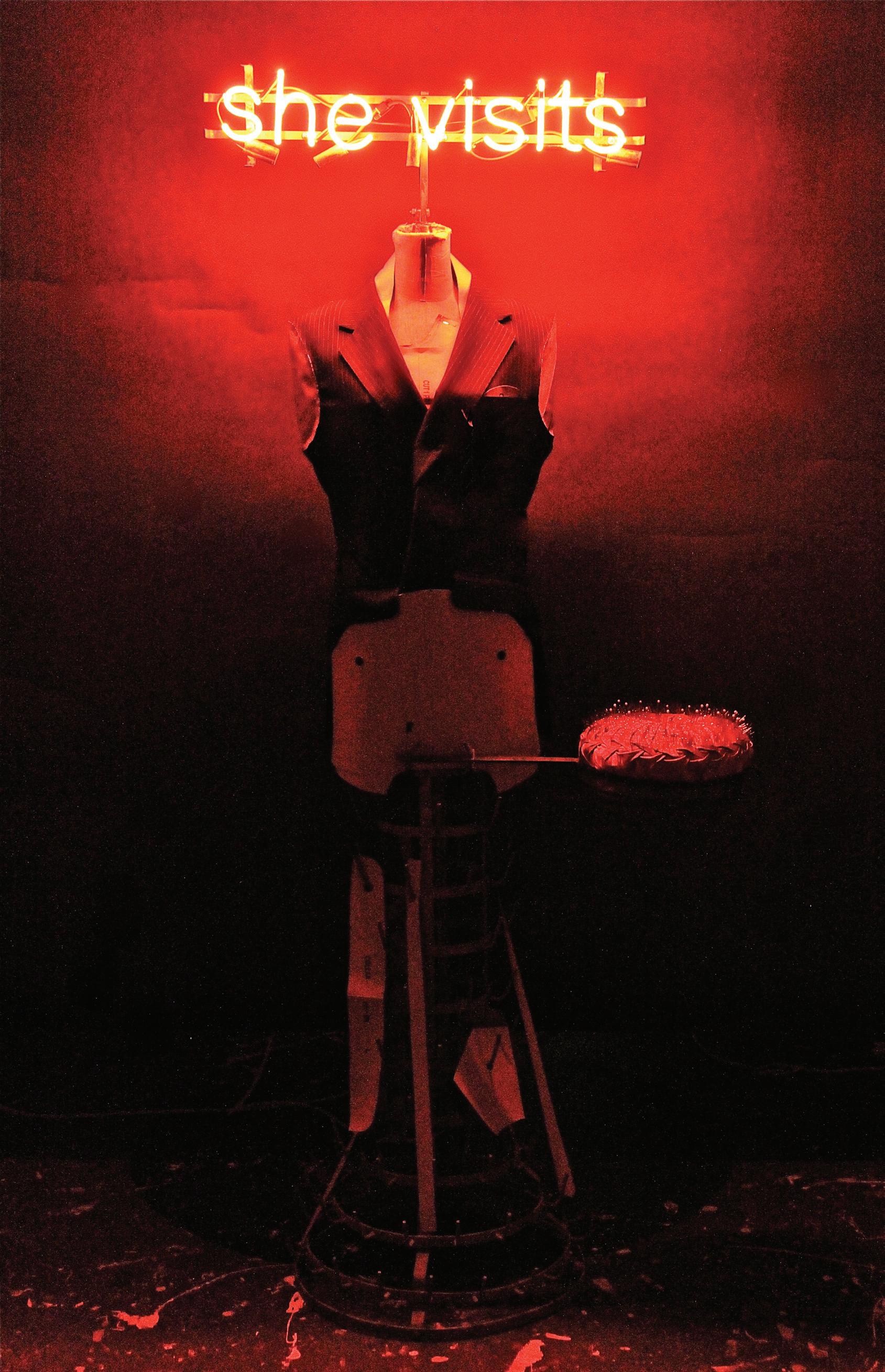






In 1972 Mariana del Castillo immigrated with her family from Ecuador to Australia. They settled in Sydney above a Greek delicatessen across from the endless blinking neon lights of suburban Kingsford. This openly brash, bright, in your face commercialism, stood in contrast to her gothic world of Ambato where religious fervour, guilt and the realisation of hell where forever branded on her young psyche through an endless series of festivals, rituals and observances. There is a depth of displacement that children of migrants carry, and religious standings and convictions can often stand in opposition to the new secular society.
del Castilllo’s crafted curiosities and fetishes step deep into the past of her Incan, African and Spanish ancestry. An intense fascination with Francisco Goya’s (1746-1828) Los Caprichos (1799), and Oswaldo Guayasamin’s (19191999) figurative commentaries on social inequality, hide in the shadows of her installation. Systemic abuses in our society, institutionalised racism and the illusion of domestic perfection run like threads through the underbelly of her practice.
del Castillo is interested in small stories and the traces left by different events. Objects carry the memory of being handled, the human stain that speaks to the human condition. At the heart of her practice is a commitment to recycling, up-cycling and transforming everyday found objects into building blocks for her sculptures and installations.

people do have the right to be bigots you know is part of Pat Hoffie’s Fully Exploited Labor series that has been ongoing for almost three decades. For this particular series she employed Balinese woodcarvers to carve the bumper-sticker slogans ‘designed’ by/for Australian tourists in Bali. Part of Hoffie’s interest in these artefacts lies in the way they perform the role of objects of cultural exchange. Each carving provides an insight into the way that Balinese traders view Australians through the items that tourists are keen to buy. Although they may seem a long way from the kind of objects that make their way into museums and collections as evidence of cultural interaction or cross-cultural influences, they are as loaded with traces of cultural trade as any other products.
First shown as you gotta love it in Artspace, Sydney in February 2013; the scope of people do have the right to be bigots you know has broadened to include changes in Australia-Indonesian relations. By April 2014 a change of government and its new priorities has significantly altered the context of the work. This, together with the fact that this exhibition at CCAS is located in the nation’s capital, made it important that the components of the installation were reconsidered. For this reason, Hoffie has included parts of quotes from the federal government in relation to Australia’s relationship with Indonesia in the face of the ongoing problems of the refugee crisis and in the wake of the ‘spying scandal’.
But there is another sense in which the art addresses ideas about truth and beauty. All of the quotes refer to aspects of a relationship - whereas the original works are, on the whole, aggressive, descriptive, imaginative, cringe-worthy and funny, the quotes taken from the Australian government are supplicating, apologetic, and pale by comparison. They have been constructed by the commercial routing machine at a sign writing company and sit between the more elaborately carved bumper-sticker carvings like apologies for the words they contain.
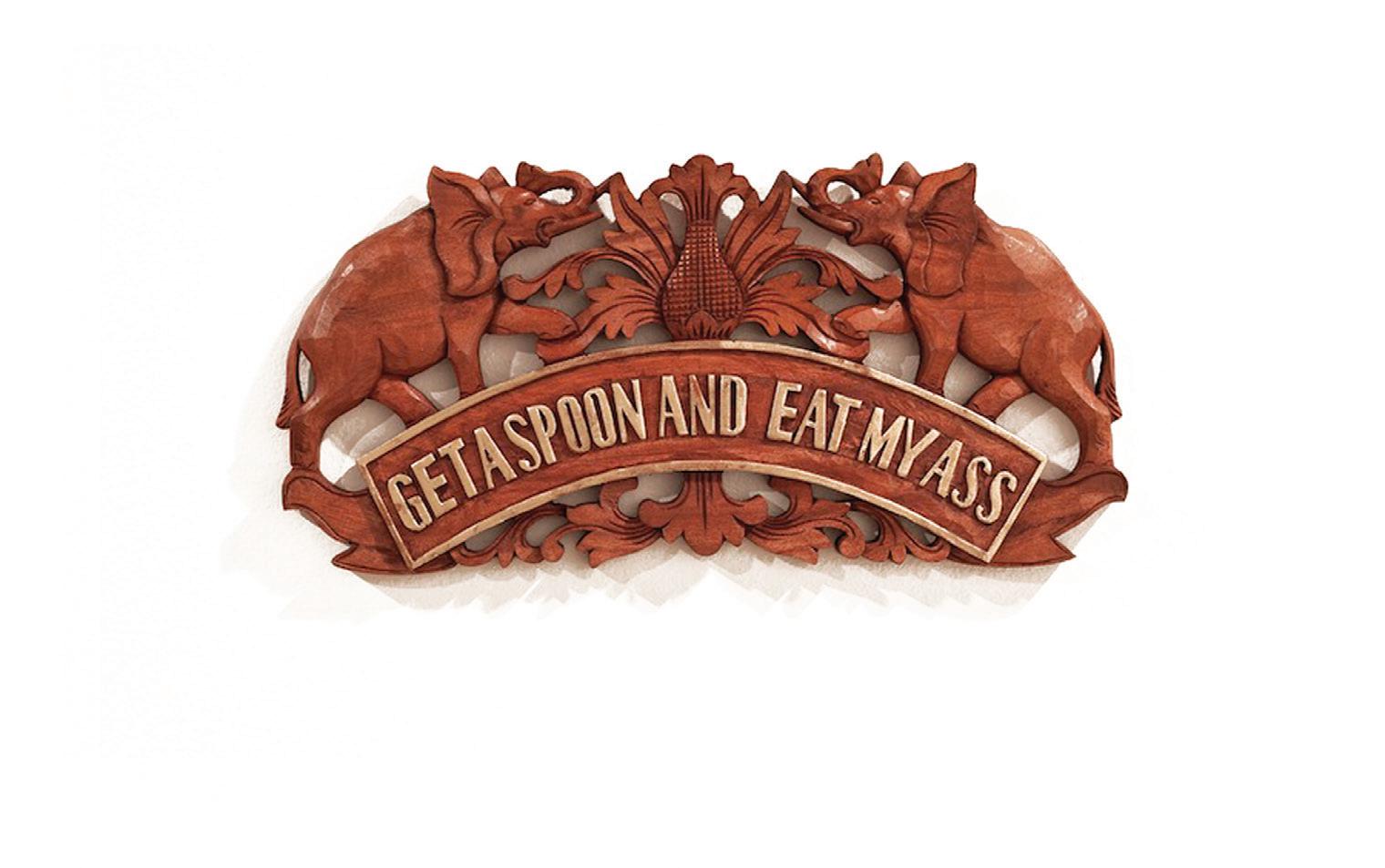
Lost solitude, I have always been prey. Like the hare with long ears, I am timid. My shadow is immense.
Sadness, flight of wild ducks. Melancholy, bitter castle of eagles.
Marcel Broodthaers, Mon livre d’ogre (1957)
Taking as its title the deliberate misinterpretation of Broodthaers’ untitled poem, sour castles is an architectural intervention that invites the viewer to enter the ‘non-place’ of the hotel hallway. French anthropologist Marc Augé first described the ‘non-place’ as a public space which cannot be defined as relational, or historical, or concerned with identity, creating “neither singular identity nor relations; only solitude”.
Divided by five numbered doors, the narrow hall reflects the distinctive physical dimensions of the human body and delineates the psychological boundaries of individual privacy in a shared environment. In this way the installation delivers a broken promise of accessibility, a deceptive corridor of private spaces that are in fact quite inaccessible, and where upon entering, any sense of privacy dissolves.
